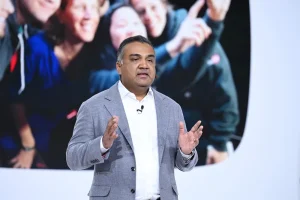Scammers are targeting YouTube creators with fake emails that appear to come from YouTube itself.
These emails claim to share a private video about changes to YouTube’s monetisation policies, often featuring a deepfake of YouTube’s CEO Neal Mohan to seem more convincing.
The email encourages creators to download a file or fill out a form, which is a phishing scam designed to steal their account information.
The scam first surfaced in a Reddit post where a user warned that their account with 500,000 subscribers was nearly hacked.

Deepfake videos of YouTube CEO Neal Mohane used by scammers to con creators
Recently, YouTube confirmed the scam and reminded creators that they never send private videos to creators. Any email claiming otherwise should be treated as a scam, and recipients should avoid clicking links or downloading files.
Expert insights
Adam Pilton, senior cybersecurity consultant at CyberSmart, described the scam as “clever” and noted that although it appears to be a phishing email, the email itself comes from YouTube. Scammers exploit YouTube’s video-sharing feature to send malicious content.
“The scam video directed the victim to a DocuSign website,” Pilton explained. “Fortunately, the user’s antivirus blocked the malicious file download.”
He advised that while the email came from a legitimate address, there were red flags, including a typo in “Creators” (misspelled as “Crearors”) and a grammatically incorrect statement at the bottom that stated: “YouTube and it’s employees will never attempt to contact you or share information through a private video’”
To prevent scams like this from happening “training is crucial,” Pilton added. “People must recognise these red flags and understand how scammers manipulate emotions like fear or urgency.”
Anna Collard, SVP of content strategy at cyber training platform KnowBe4, stressed that this scam shows how social engineering tactics are evolving.
“Deepfake videos aren’t new, but AI tools now make these scams appear more convincing,” Collard said.
“With 82% of phishing kits now including deepfake capabilities, scams can look much more legitimate.”
According to Collard, digital mindfulness is the best defence. “Pause before reacting, verify independently, and never assume something is real just because it looks convincing.”
Ongoing threats
This is not the first time YouTube creators have been targeted. Recently, over 200,000 YouTube creators faced phishing attempts from scammers posing as reputable brands offering collaborations. These emails often included malicious attachments or links designed to steal account credentials.
Wired has also reported a rise in AI-generated influencers on platforms like Instagram. These fake profiles steal content from real creators, causing financial losses and raising concerns about online authenticity.


